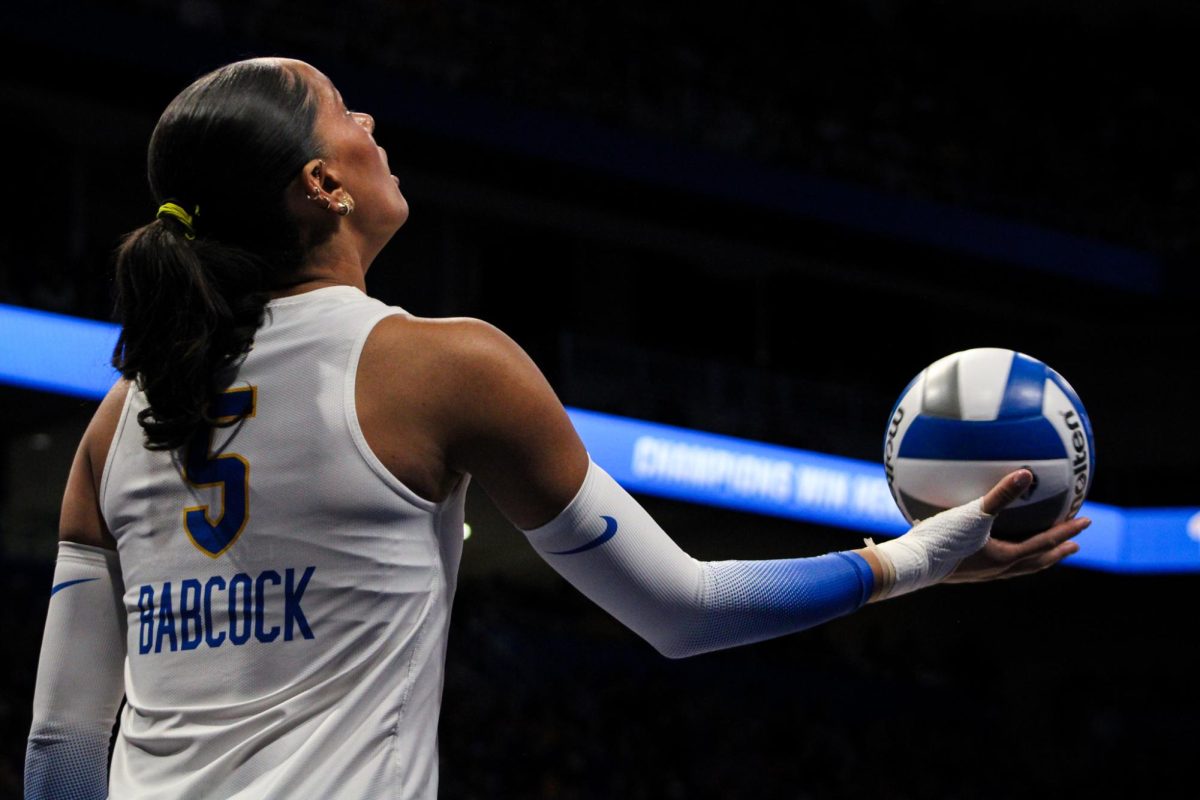Sex Edition: Religion can affect relationship choices in college
February 12, 2010
Pitt student Rebecca Kritz and her boyfriend, Micah Urbach, first conversed about religion…. Pitt student Rebecca Kritz and her boyfriend, Micah Urbach, first conversed about religion.
They met with an icebreaker at an introductory session before a year-long trip to Israel. The trip was a gap-year program that takes place the year in between college and high school, called Young Judaea’s Year Course.
By the time the pair was on the bus home from their first meeting, they had decided to date exclusively.
It was easy for Kritz and Urbach to connect. Both had the same criteria for a romance: potential for a lasting relationship and similar interests.
For Kritz, sharing her partner’s religious faith is necessary for a successful relationship because sharing another religion’s traditions is frowned upon by her family, community and religion.
“If he wasn’t Jewish, there would be no point,” she said.
It is important for Kritz to marry a Jewish man to not only uphold her own traditions, but also for the future of her children.
Rebecca Denova, a religious studies professor at Pitt, believes the issue of interfaith marriage is connected to the “rearing of children” in order to perpetuate the belief systems of a community.
“For instance, when a Catholic marries a Protestant, the Protestant is encouraged to convert,” Denova said, “and part of that process includes a vow to raise the children as Catholics.”
Kritz, 19, decided to attend Pitt while Urbach, 20, is enrolled at Montclair State University in New Jersey.
Kritz’s and Urbach’s relationship, aside from the long distance, is relatively easygoing.
It is not always this way for student relationships. Other couples have harder issues to reconcile.
One interfaith couple, who chose to remain anonymous because of the sensitivity of the topic and because neither party talked to his or her parents about the arrangement, has only been dating a month and faces hard realizations about the long run.
“In Islam, a man can marry outside his religion,” he said. “The child will still be considered Muslim. Women in Islam have to marry a a man of their same religion.””
She said, “In Judaism, it is the opposite. The child is Jewish if the mother is.”
Jewish dogma still encourages women to marry within the faith.
“It’s not negotiable. The man I marry has to be Jewish,” she said.
In the Islamic religion, because people are born from their “masters,” or parents, they must seek their permission before marrying.
“My sister went to grad school and met a Christian guy,” he said, “because she can’t marry him, he converted for her, but my parents still don’t approve. It’s still a sin.”
The couple, though still together, admitted that the relationship probably wouldn’t work.
David Katz, director of J’Burgh, a program affiliated with Hillel for graduate students and graduate professionals, encourages a singles-oriented program but does not advocate using the program as a dating service.
“If you push a program, it adds a pressure that’s not necessary,” Katz said. “The program brings different group of people and showcases the community.”
He said the program exists to help emerging adults identify with something familiar. Its intent is not to make matches. Members can do anything from volunteer to play softball.
Katz believes J’Burgh is successful because it provides a space where members can find out what their faith means to themselves.
“No one is telling them what to think. They are figuring it out,” he said.
John Wallace, pastor of the Bible Center Church of God in Christ in Homewood and Pitt social work professor, advocates same-faith marriage but agrees with Katz that pushing people to go in one direction is the wrong approach.
People who have things in common are more likely to succeed, he said. A common faith is just one variable.
“Limiting it to just faith is too simplistic,” Wallace said. “Major differences about life and priorities, raising children, parenting, pets produce conflicts affect a relationship. Faith is one, but not the only one.”
If people are honest about who they are, Wallace said, they will know what’s good for them.


